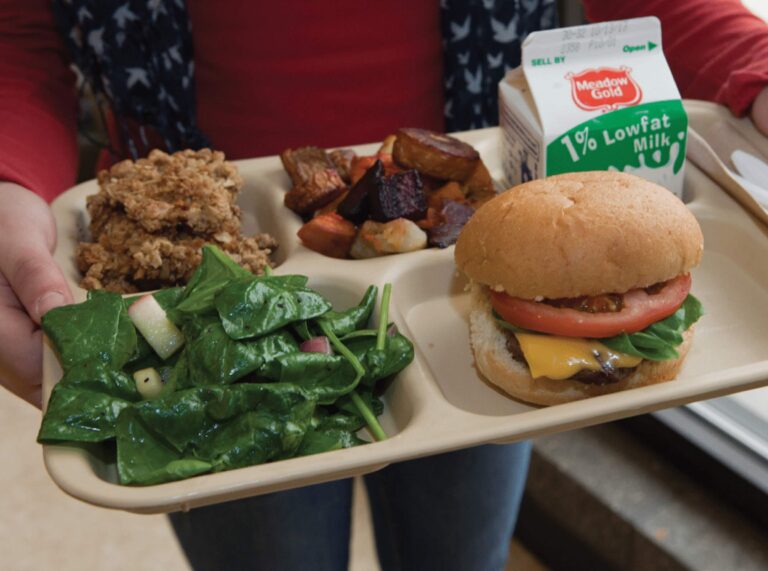Our 2024 Child Nutrition Policy Year in Review
The year in school food, wrapped.
Join our corps! Applications for 2026-2027 are now open. Apply by March 30.
The year in school food, wrapped.

It’s that time again! The year is coming to a close, and we’re looking back at the child nutrition policy moments that shaped our year and what we expect in early 2025.
Think of this as your school food policy wrapped, where we’ll review our top stories, celebrate new additions, and recap the policy moments (looking at you, Farm Bill) that we can’t get out of our heads.
Another Farm Bill Extension
This year, we watched to see if Congress would pass an update to the current Farm Bill, which was passed in 2018 and was due for reauthorization in September 2023. Without any significant progress this year, it looks like we’ll keep up that trend in 2025.
However, with many key farm programs set to expire on December 31, this hasn’t left our radar quite yet. Congress agrees that a one-year extension to the Farm Bill must be included in the year-end funding stopgap to prevent interruptions. The details of what that extension will look like are still on the negotiation table, but they need to be decided soon—Congress only has until December 20 to pass the funding stopgap.
Summer EBT
This summer, we saw a policy package of three summer school meal programs meant to help improve nutrition security for kids and teens during the summer months. This included SUN Bucks, a new evidence-based Summer EBT benefit that is expected to impact 21 million children nationwide.
New Online Tool For Advocates
This fall, we launched our new School Food Policy Action Map, where you can explore the status of school meal policies in every state and find actions to advocate for food education, free school meals, and other investments in child nutrition.
If you’re looking to take action in your state, create your advocacy profile and let lawmakers hear which policies are a priority for you.
Alumni Advocacy Leads, Remixed
In the 2023-2024 school year, FoodCorps launched its second year of the Alumni Advocacy Leads program. While the program isn’t exactly new to the scene, there were some notable developments this time around, including the program’s first in-person gathering in Washington, DC. There, over the course of three days, Alumni Leads from across the country met with FoodCorps staff for professional development, received training, and met with their members of Congress to put their advocacy skills into action.
We’ll have more to share about the next cohort, but if you’re interested in learning more, here’s a recap from two Alumni Advocacy Leads following their time in DC.
While many things are uncertain, it’s clear that there will be many opportunities to advocate for child nutrition in the year ahead. FoodCorps’ commitment to ensuring that all 50 million students learn about food and have access to nourishing, free school meals by 2030 is unwavering.
In early 2025, we expect to see the election results, and their impacts, continue to take shape. In Congress, Republicans control the House of Representatives with a slim majority of 220 seats compared to the 215 seats held by Democrats. While only 218 seats are needed for control, President-elect Donald Trump’s selection of Republican lawmakers for key jobs in his incoming administration will likely narrow that majority until special elections for those vacated seats are held. In the Senate, Republicans benefit from a 53-seat majority compared to Democrats’ 47 seats.
Following the inauguration, we’ll be watching to see which priorities lawmakers take action on, the Senate confirmations for political appointments, and most importantly, for opportunities to share with lawmakers the importance of prioritizing policies that benefit child nutrition.
We’ll see you next year.
Interested in upcoming advocacy opportunities? Sign up for our advocacy emails!

3 Reasons We Need School Meals for All

Mindful Tasting: Eating with All 5 Senses

Our 2025 Child Nutrition Policy Year in Review